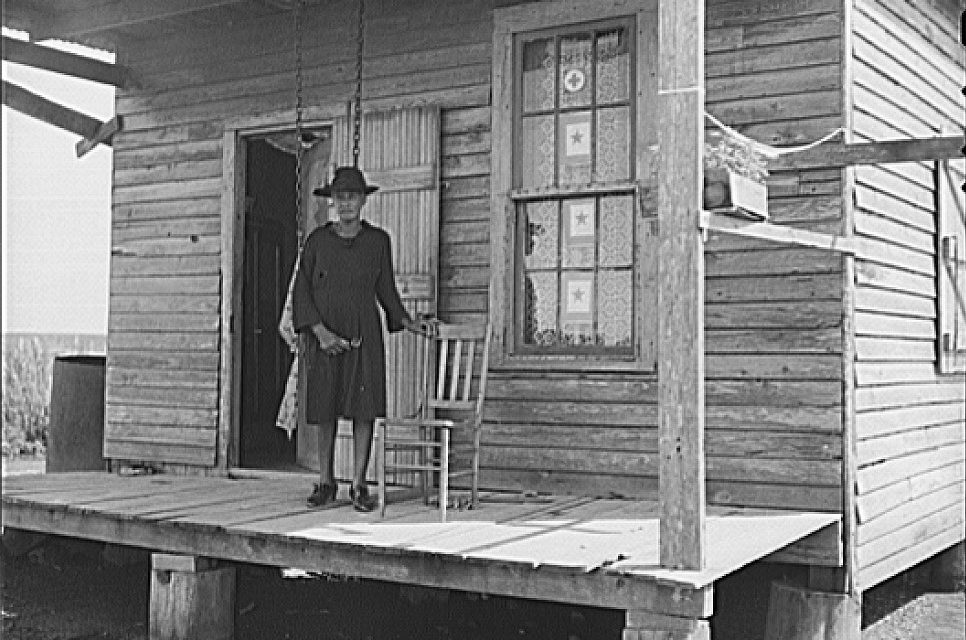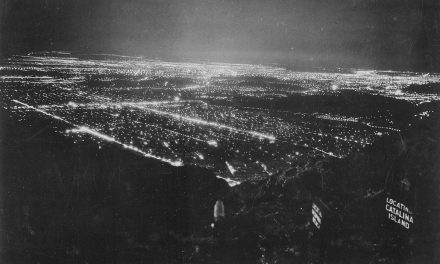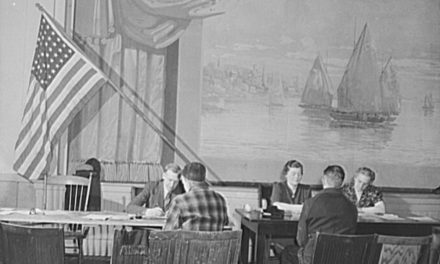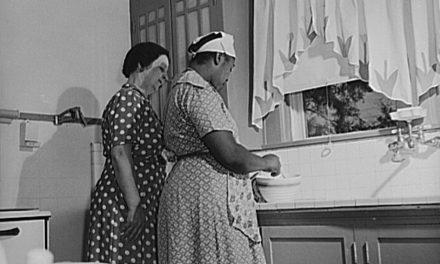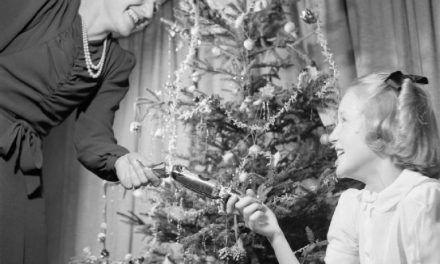Louisiana Governor Sam Jones escorted the state’s first gold star mother of World War II into a Youngsville church. Inside a High Requiem Mass was being held in honor of her son, Sidney Larriviere, who died on the U.S.S. Kearny.
It was a Nazi torpedo that caused the first U.S. Navy casualties of the war since the U.S’s official involvement. There were 11 men who perished together in the North Atlantic, each from a different state: Illinois, California, North Carolina, Ohio, New York, Texas, Georgia, Pennsylvania, Alabama, Arkansas, and Louisiana.
Another mother, Jennie Dobnikar, an immigrant from Slovenia, has another two sons in the U.S. Navy. She held the picture of her oldest son, Louis, who also died aboard the Kearny, in her lap.
“There’ll be plenty more,” she said, looking through her silver wire-rimmed glasses at her son’s image. He served for over 18 years and was close to retirement when the torpedo struck. “I hope we catch [those dirty rats].”
Dobnikar’s statement is echoed by other gold star mothers. With Independence Day around the corner, their usual celebrations are diminished by the loss of their sons.
It will be a difficult time to celebrate freedom for those who know the sacrifices and its ultimate cost. “There’s no thrill in being a gold star mother,” Dorothy McLeod of California said. McLeod lost her son, Jim, in the Battle of Bataan.
Around the same time, the national president of the American Gold Star Mothers, Emma Balcom, wrote President Franklin D. Roosevelt. She wanted to know what stance the administration had on her organization during this war.
Roosevelt responded with support, stating that “it is not too early to consider the subject now.” He suggested that women should wear a 3-inch black band on their left arm while mourning the death of family in active service, instead of wearing full mourning attire.
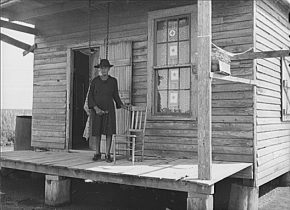
A mother of three soldiers in Plaquemines Parish, Louisiana, displays three gold stars in her window. Photograph by John Vachon, from Library of Congress.
1942 National Convention
A woman walked into the ballroom of the Hotel New Yorker, and the sound of applause suddenly surrounded her. Her black hair made her stand out from the other gray-haired women standing with her at the eighth annual American Gold Star Mothers convention. It ran from Tuesday, June 9 to Friday, June 12.
Gertrude Kram, 44, was the first official member of the AGSM who lost a son in the current war. Kram’s son, Leonard, enlisted in the Navy on Dec. 19 and was assigned as a gunner to the tanker ship R. P. Resor. He was killed when the tanker was torpedoed by a German U-boat off New Jersey’s coast on Feb. 27.
This is not Kram’s first encounter with the loss war can bring to a family. She is the daughter of a gold star mother, the late Ella Freedman. Kram’s brother, Sgt. Isaac Freedman, died during the Great War while serving in France.
AGSM officials confirmed that Kram was the first mother to apply for and receive membership for a casualty in the Second World War. Prior to the amendment, the AGSM only permitted mothers of the First World War as members. They also stated that so far five other mothers from the current conflict have applied to wear a gold star in memory of their sons.
Kram attended the convention with her husband, Abraham. They witnessed AGSM president Balcom initiate the other new gold star mothers: Celia Schwartzberg, Mary Snyder, Florence Merkl and Rita Wilson.
Wilson, who dressed in black for the occasion, cried as she received an armband from previous AGSM president Jennie Williams. The armband was from the First World War and originally belonged to Williams.
The admission of World War II gold star mothers faced a lot of opposition earlier in the year. Letters had been written expressing concerns, since the organization was a group of older mothers from the First World War. Many wanted the new mothers to form their own organization, including Long Beach California’s chapter AGSM executive secretary, Inez Van Hyning.
Balcom expressed the opinion of the national executive board, that all the mothers in the organization, including the new war mothers have “suffered the same sacrifice,” and she welcomed them.
During the convention, Balcom also read from a letter that President Roosevelt had written for the mothers. Many mothers to tear up in the audience as Balcom read: “On behalf of our nation, I pay to you a tribute which belongs alone to you, the mothers of those who rendered the noblest and most glorious service for their country. Through that service you have been granted an eternal place in American history and the right to the stars of gold which are your symbol.”
Sources:
“Gold Star Mother.” (1941, Dec.). Life. p. 11
“Gold star mothers given approval by Roosevelt.” (1942, May 24). The Washington Post. p. 10
“Gold star group debate new rule.” (1942, Jun 12). New York Times p.18
“Gold star group grows with war.” (1942, Jun 11). New York Times. p. 20
“Life on the news fronts of the war: Flesh and blood.” (1942, Jul.) Life. p. 22
“New war mothers voted gold stars.” (1942, Jun 13). The New York Times. p. 12
“Sad news reaches first Gold star Mothers of World War II.” (1941, Nov.). Life. p. 38

